What really happens in a headspace consult room? Breaking myths this headspace day
06 October 2025, 9:03 PM
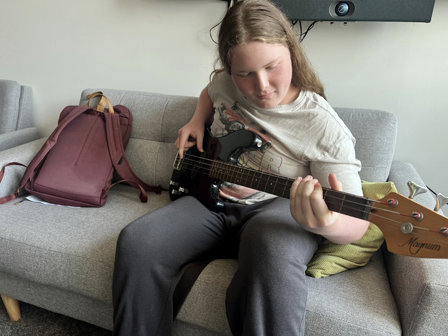 16-year-old South Gundurimba teenager, Leon McCann, encouraging young people to access support. Photo: supplied.
16-year-old South Gundurimba teenager, Leon McCann, encouraging young people to access support. Photo: supplied.This Thursday is national headspace day. Mental ill health is the primary threat to the health, wellbeing and productivity of young people, with nearly 40% of 16–24-year-old people experiencing a mental health disorder according to the Australian Bureau of Statistics.
When it comes to seeking support for mental health, many young people hesitate. Some might imagine a counselling session as a clinical experience, sitting on a couch under fluorescent lights while a doctor in a white coat takes notes. But at headspace Lismore, headspace Ballina and headspace Tweed Heads, delivered by Social Futures, the reality couldn’t be more different.
National headspace day is the perfect time to explore what a headspace consult can look like and why making space for your mental health and wellbeing is so important. This year’s theme, Make Space, encourages us to carve out time for the things that matter to our mental health, whether that’s taking a moment for yourself or enjoying activities that lift you up.
A space that feels like yours
Sheree Dixon, Clinical Lead at headspace Ballina, explains that the consult rooms at headspace are designed with young people in mind. “The room is a nice, open space,” she says. “We adjust the lighting to suit the needs of the young person. That might be by having the window open, dimming the lights, or providing young people with a cosy blanket. It’s all about what makes them feel comfortable.”
The seating arrangements are also flexible. “The chairs aren’t fixed, so if a young person prefers to sit side by side, we can do that. They can sit on the ground, bring in bean bags, whatever works for them,” Sheree adds. “We always ask, ‘Where would you prefer to sit? Does this feel comfortable for you?’ It’s about giving them choice and ownership of the space.”
This approach helps break down the perceived power imbalance that can sometimes exist in traditional counselling settings. “From the moment they walk in, we want young people to know this is their safe space, and they have control over it,” Sheree says.
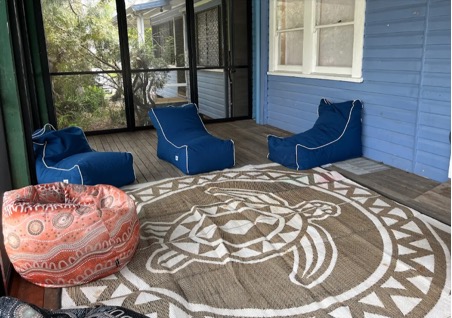
More than just talk
While talking is a big part of what happens in a consult room, headspace staff use a variety of creative and interactive modalities to help young people feel at ease. “We have these beautiful desks that can extend up, so young people can sit and colour, draw, or do something with their hands while they talk,” Sheree explains.
“We always have big art books, markers, and fidget tools available, especially for young people with differing sensory needs who might find it easier to engage while doing something tactile.”
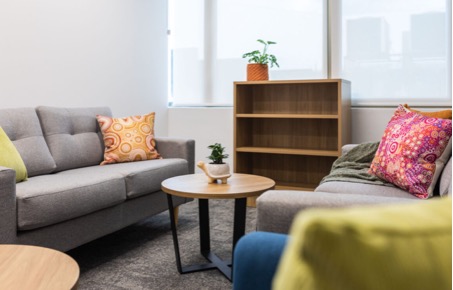
Other activities might include clay-making, collaging, or even grounding exercises. “Sometimes we’ll take the session outside into the backyard for a grounding exercise, like putting their feet on the earth,” Sheree says. “It’s about being adaptable and meeting the young person where they are.”
For Leon, a 16-year-old member of the Lismore Youth Advisory Group (YAG) at headspace, this flexibility made all the difference. “It wasn’t what I expected at all,” he says. “It was less laboratory vibes and more like just sitting on a couch and chatting. They’d ask questions occasionally, but mostly, I just got to talk. It was nice.”
Space for what matters
The theme of this year’s National headspace day, Make Space, is a reminder that mental health and wellbeing deserve our time and attention. For Leon, making space means playing music. “I play the drums and I’m learning bass,” he says.
“Music helps me focus and lets me let out all my energy. It’s something I can do just for me, without worrying about messing up.”
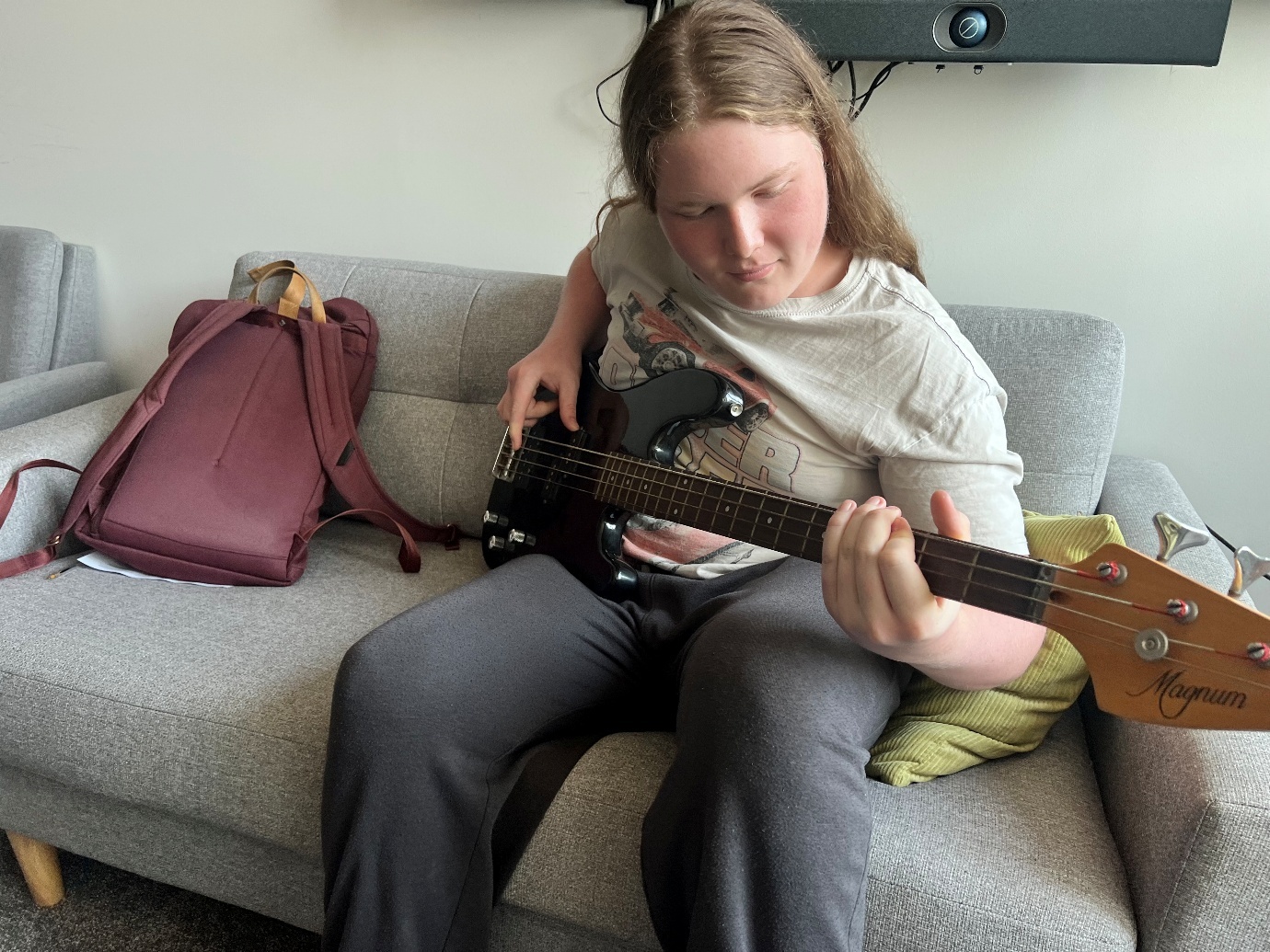
Sheree agrees that finding time for activities that bring joy and calm is crucial. “A lot of people try to cram as much as they can into their lives, but it’s so important to make space for things that help you unwind,” she says. “It doesn’t have to be something big, it could be drawing, painting, or even a colouring book. Just something low-stakes that lets you relax.”
Seeking support is important
For young people who might be hesitant to reach out for help, Leon has a simple message: “There’s no risk to it. If you don’t like it, you don’t have to keep going. But just talking to someone can make such a difference.”
“At headspace, our message to young people is simple: you don’t have to go through this alone,” says headspace CEO, Jason Trethowan. “Whether it’s through our centres, online services, or the everyday support of family, friends, and community, help is always available and reaching out is a powerful step.”
Sheree says headspace consultations are designed to be accessible and welcoming. “It’s free, and people can access eheadspace services using their mobile device if they are feeling nervous about attending face-to-face. The important thing is to take that first step.”
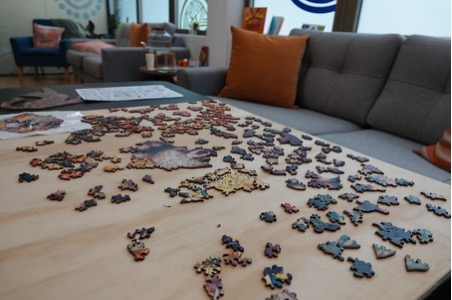
Leon says stigma still persists around youth mental health, but it is improving. “There are still people who treat it as something weird or something to avoid. That kind of attitude can make it so much harder for young people to seek help, but I think things are getting better.”
“The stigma is lifting, and more people are starting to understand that mental health is just as important as physical health. We just need to keep spreading the word.”
“There’s no harm in trying. Just go for it.”
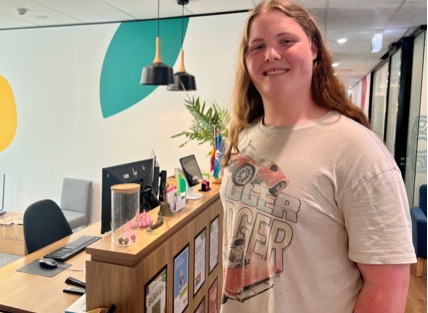
Ready to make some more space for wellbeing? The headspace website has lots of interactive activities to help: https://headspace.org.au/interactive-activities/wellbeing/.
If you or someone you know is struggling, headspace is here to help. You can take that first step by calling headspace Ballina or headspace Lismore on 02 6625 0200 and headspace Tweed on (07) 5589 8700.
Send an email via our website: https://socialfutures.org.au/headspace/.
Or drop in and see them:
- headspace Tweed: 145 Wharf Street, Tweed Heads (Monday, Tuesday, Wednesday 9:30 am – 5:30 pm; Thursday 8:30 am – 6:00 pm; Friday 8:00 am – 4:00 pm)
- headspace Lismore: Level 1, 29 Molesworth Street, Lismore (Monday to Thursday 9:00 am – 6:00 pm; Friday 8:30 am – 4:00 pm)
- headspace Ballina: 32 Swift Street, Ballina (Monday to Thursday 10:00 am – 6:00 pm)
headspace Lismore, headspace Tweed Heads and headspace Ballina are operated by Social Futures and funded by Healthy North Coast through the North Coast PHN Program.

